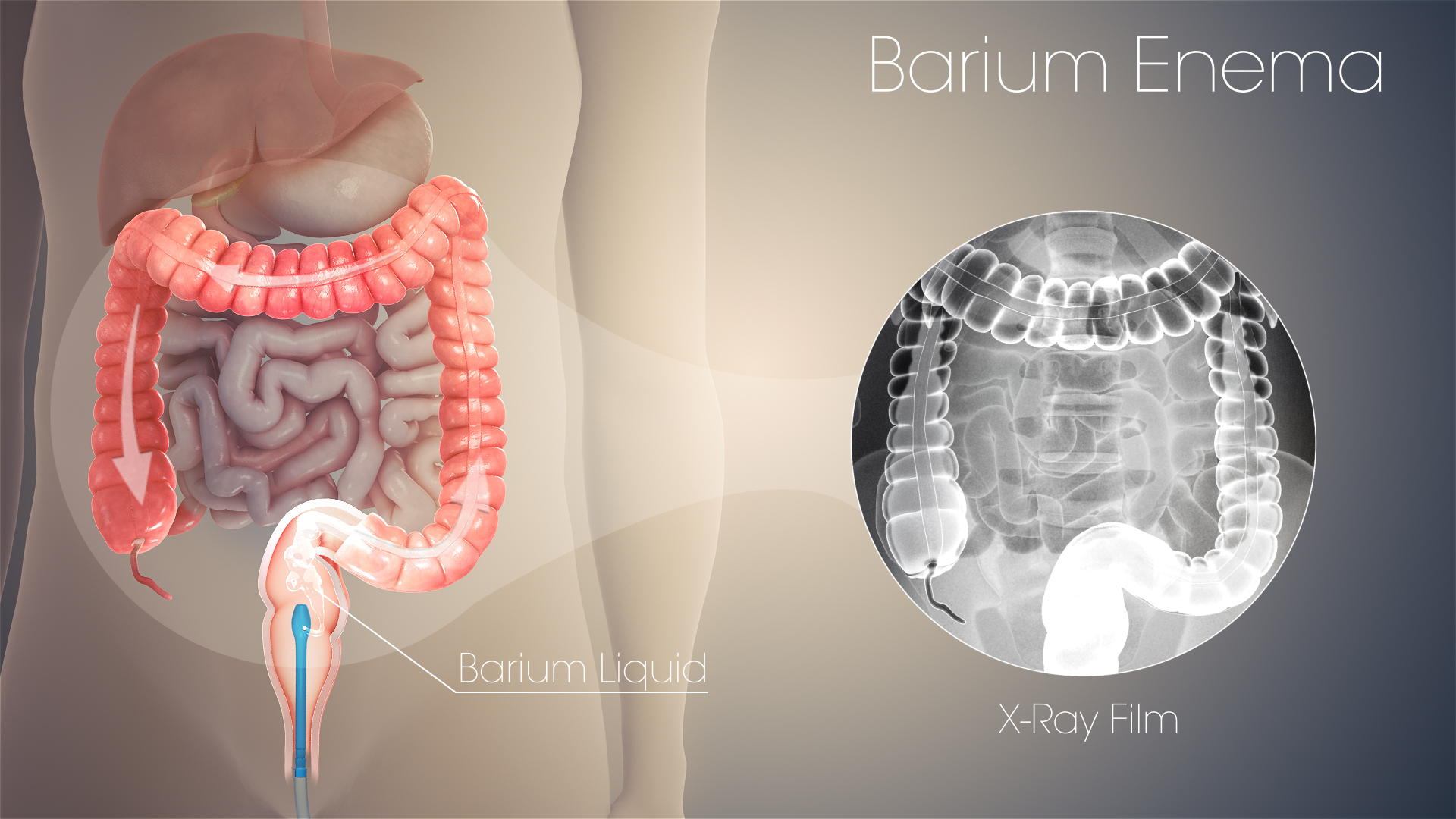A Barium enema is an X-ray imaging test that examines the lower intestinal tract, consisting of the ascending colon, the transverse colon, the descending colon, the sigmoid colon and the rectum. The procedure delivers a contrast solution containing the metallic element barium, into the rectum. Enema refers to pushing liquid into the rectum through the anus.
The contrast solution improves the quality of X-ray images and allows the radiologist to observe the internal organs in motion by tracking the flow of the barium solution through the intestinal tract.
Procedure
Before
Preparing for a barium enema exam requires emptying the colon, as any residue would obscure the X-ray images or could be mistaken for an abnormality.
For this, the patient needs to follow a liquid diet the day before the exam usually comprising of only water, tea or coffee without milk, broth, and clear carbonated beverages. It’s also advised to take a laxative the night before the exam that aids emptying of colon.
If the patient is on certain medication, they may be asked to stop it a few days or hours before the exam.
During
A barium enema typically takes between 30-60 minutes. The radiologist inserts a small tube into the patient’s rectum and introduces the barium and water mixture into the colon. The radiologist may gently push air into the colon post delivering the barium mixture in order to obtain more detailed X-ray images. This is called an air-contrast barium enema.
As the barium fills the colon, the patient is likely to feel abdominal pressure or even minor cramping. Patients are asked to hold still and breathe gently while the X-rays are taken.
After
After the procedure, most of the barium and water is removed through the tube. The rest is passed in the bathroom.

What the results mean?
A barium enema can show:
- Intestinal blockage or obstruction.
- Significant growth of cells (polyp or tumor) in the colon.
- Irregular masses or tumours extending from the colon to other organs pressing on it.
Risks
Rarely, there may arise certain complications post a barium enema exam. The complications include:
- Inflammation in tissues surrounding the colon
- Obstruction in the gastrointestinal tract
- Tear in the colon wall
- Over-exposure to X-ray radiations
- Allergic reaction to barium
A barium enema is usually not appropriate for patients going through extreme abdominal pain or those who had a recent colonic biopsy. If perforation of the colon is suspected, the enema should be performed with a water-soluble contrast solution.

Gastroenteritis Explained
Gastroenteritis refers to inflammation and irritation of the gastrointestinal tract which includes the small intestine, large intestine, and the stomach1. The condition is mostly caused due to food poisoning, bacteria, virus, or parasites. Read More..








